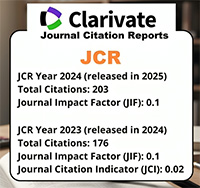Experiences and proposals for Covid-19/SARS-CoV-2 in Venezuela.
Experiencias y propuestas sobre CoVID-19/ SARS-CoV-2 en Venezuela.
Abstract
This special issue of Investigacion Clinica brings a cluster of papers received, reviewed and accepted this year, on the subject of Covid-19/SARS-CoV-2, product of experimental and clinical results obtained in Venezuela and some proposals; all the authors are Venezuelans. One of the experimental ones is the production of therapeutic antibodies for SARS-CoV-2 obtained from hyper immune equine plasma using the spike protein receptor binding domain as an immunogen, with potential use in humans. The second one is the developing of a method for rapid detection, by restriction enzyme analysis, of mutation at position 484 of SARS-CoV-2 that have been associated with evasion to neutralizing antibodies. The clinical ones are: a study that compared the characteristics and in-hospital clinical course of patients with COVID-19 with a probable diagnosis of COVID-19 with and without hyperglycemia during the hospitalization. The second study shows that the prevalence of SARS-CoV-2 infection among health care workers was higher among support workers compared to front-line workers,. In two Reviews the authors make proposals, one regarding the possibility that SARS‐CoV‐2 could be transmitted by the feco‐oral route, since it is known that the virus can infect gastro-intestinal epithelial cells and a significant number of infected people have gastrointestinal symptoms. The other proposal is that, since tetracyclines can act on viral infections by several mechanisms including inhibition of protein synthesis, and inhibition of viral structural proteins, thus, tetracyclines might represent a potential drug against SARS-CoV-2 infection. We are very proud to offer to the scientific community these Venezuelan contributions to the Covid-19/SARS-CoV-2 subject.





















